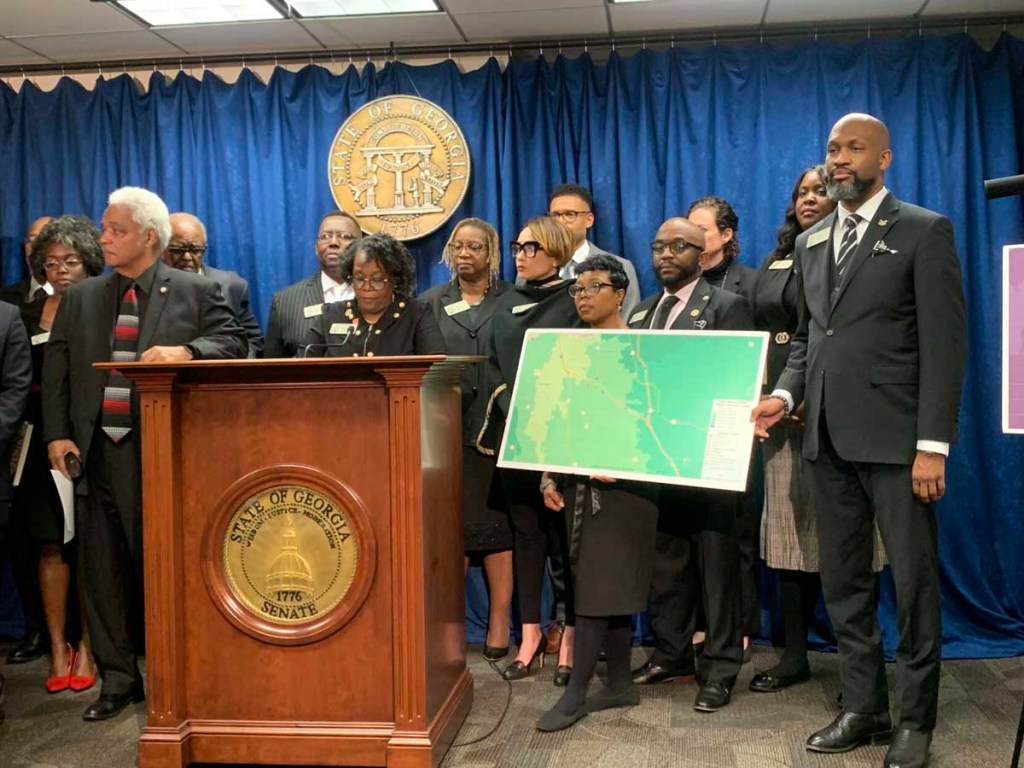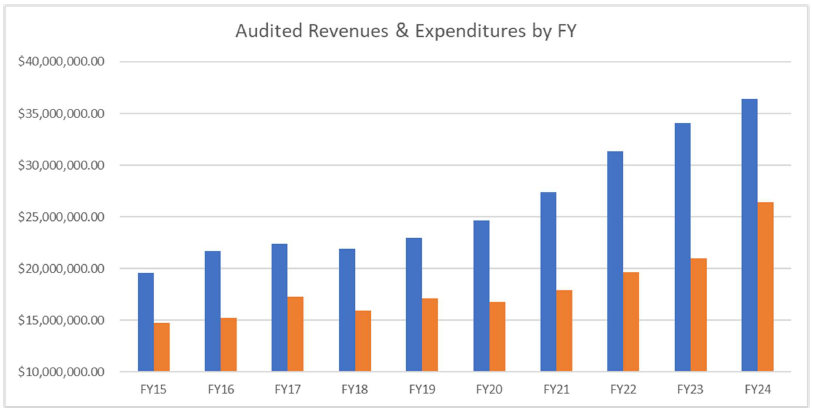Black caucus presents plans to address Black issues
Published 12:00 am Wednesday, February 22, 2023

- The Georgia Legislative Black Caucus on Feb. 15 announced 10 pieces of legislation that aim to address issues that affect Black Georgians.
ATLANTA — With a little more than two weeks left until Crossover Day, the Georgia Legislative Black Caucus is pushing at least 10 pieces of legislation as part of its campaign to address issues facing Black Georgians.
Crossover Day, when bills must be passed in their originating chamber to have a chance for full approval in the Georgia General Assembly, is March 6.
Trending
The Caucus is hopeful that laws addressing systemic racism and discrimination, income and wealth inequality, health care disparities, environmental injustice, voter suppression, unemployment, economic development, food insecurity, access to financial services and disparities in Black farming, will move forward.
State Rep. Kim Schofield said The Credit Desert Act of 2023 aims to increase access to non-predatory loans, reduce predatory lending and improve the economic well-being of low-income and minority communities.
“There are many Georgians unaware right now that the loan level price adjustment will be coming online and greatly impact homeowners that are existing homeowners and new homeowners,” Rep. Kim Schofield said. “Unsolicited checks and credit score algorithms must be transparent and accountable to protect consumers from unfair practices … Credit desert areas are disproportionately affecting low-income and minority communities and limit their ability to access credit and financial services.”
The Caucus also wants to address “pharmacy deserts” in low-income and minority communities by increasing Medicaid reimbursement rates and supporting the establishment and expansion of pharmacies.
Rep. Jasmine Clark, House Whip of the GLBC, said there are some areas in the state where there is no pharmacy for miles and places where transportation to pharmacies may be limited.
Clark plans to introduce the Georgia Pharmacy Desert Act, which calls for a study of pharmacy access and implement strategies to increase access.
Trending
The proposal, she said, would provide negotiations with pharmacy benefit managers and Centers for Medicare Medicaid Services on reimbursement rates for pharmacies located in pharmacy desert areas and provide funding transportation assistance and telemedicine so that medicine is available to underserved communities.
“We will accomplish this through tax credits, technical assistance, zoning and land use reform and reducing the regulatory burdens, as well as with public private partnerships, increasing reimbursement rates and through pharmacy education programs,” Clark said. “…The consequences of lack of access to medicine can be profound, resulting in higher cases of chronic disease and worse health outcomes.”
Another bill proposal from the Caucus would promote supplier diversity when awarding state contracts and provide certification resources for minority and women-owned businesses.
Through a July 2022 executive order, Gov. Brian Kemp authorized the Department of Administrative Services to create the position “Small Business and Supplier Diversity Manager,” tasked with increasing outreach and engagement to minority businesses.
State Rep. Roger Bruce said his proposed HB 289 has been introduced several times and would codify that executive order and create a supplier diversity unit within the Department of Administrative Services.
“The purpose is to make sure that we are not in a situation where all of the contracts and state government are going to the same people,” Bruce said. “African Americans represent about 20% of the companies in Georgia, but we only represent less than a percent of the amount of contracts that have been distributed throughout the throughout the state.”
Other legislation planned or drafted by the GLBC to address issues affecting Black Georgians include:
·T he Environmental Justice Act of 2023, which would promote policies and practices that address environmental degradation and pollution in Black communities and ensure equal access to a healthy and safe environment;
· The Racial Equity in Agriculture Act of 2023, which would address discrimination and systemic barriers by increasing funding for programs, establishing a land trust and promoting culturally essential crops for Black farming operations;
· The Racial Wealth Gap Reduction and Financial Inclusion Act of 2023, which would create funding opportunities to expand affordable housing, financial education programs and incentives for Black-owned small businesses;
· The Regulated Industry Community Investment Act of 2023, which would provide regulatory oversight for industries receiving government support, such as creating community investment requirements, allocating a portion of their profits or resources toward community investment. This bill would also establish penalties for non-compliant industries.




